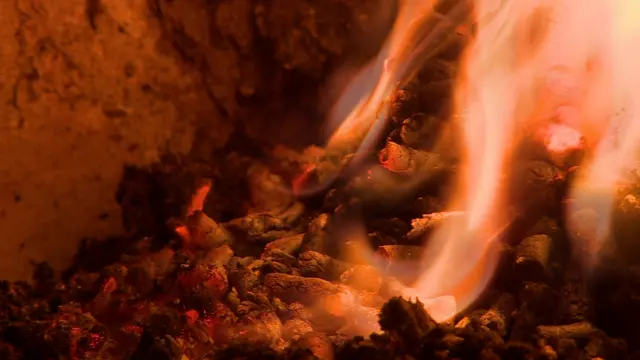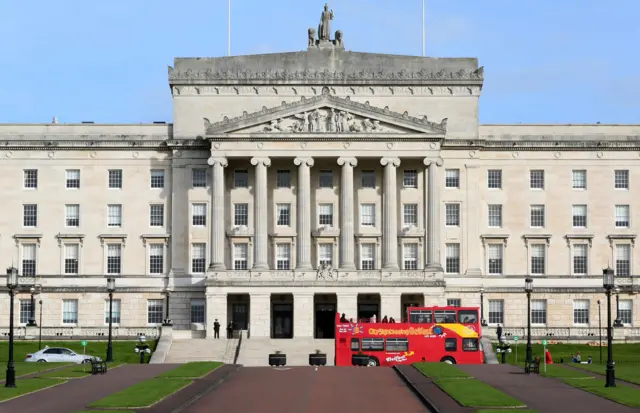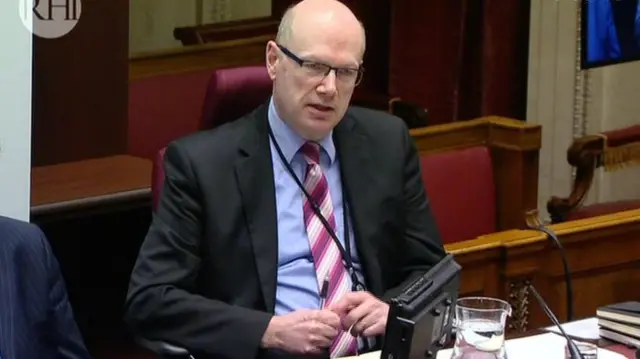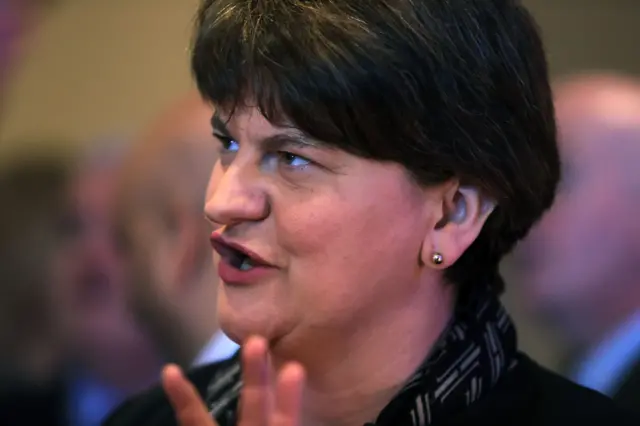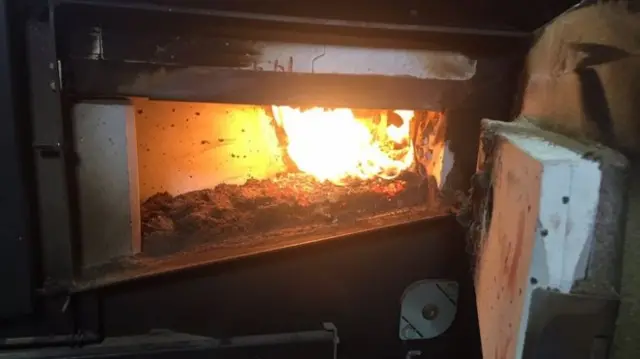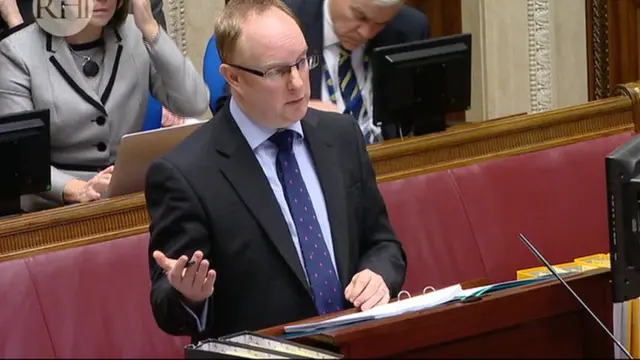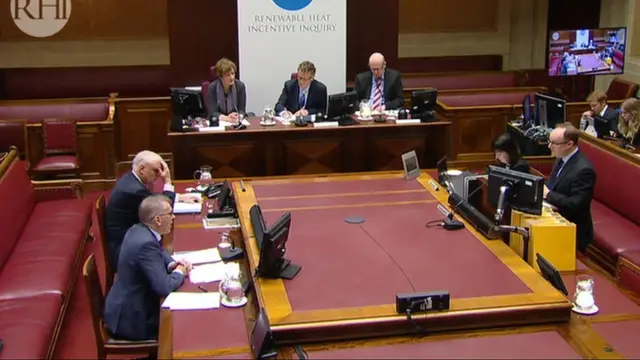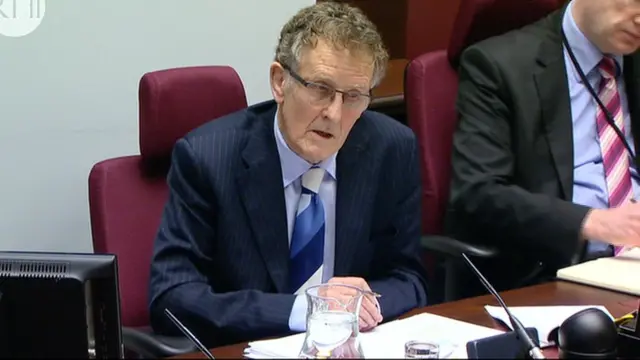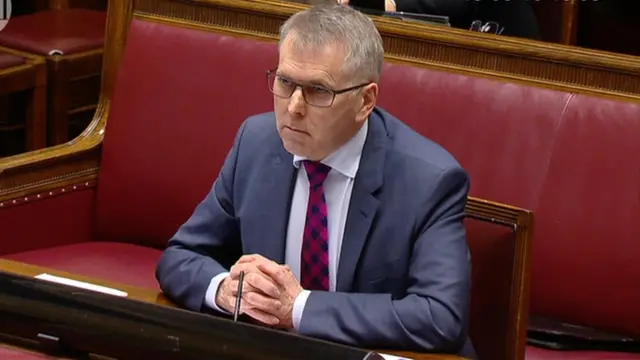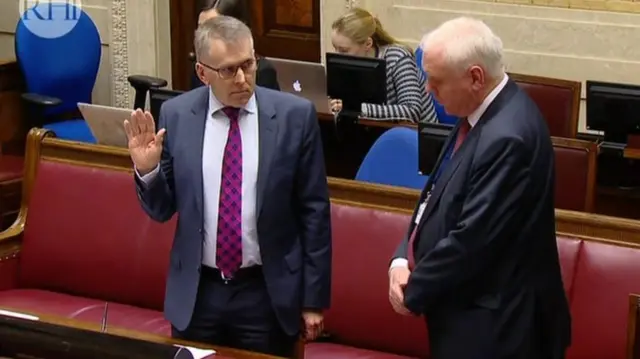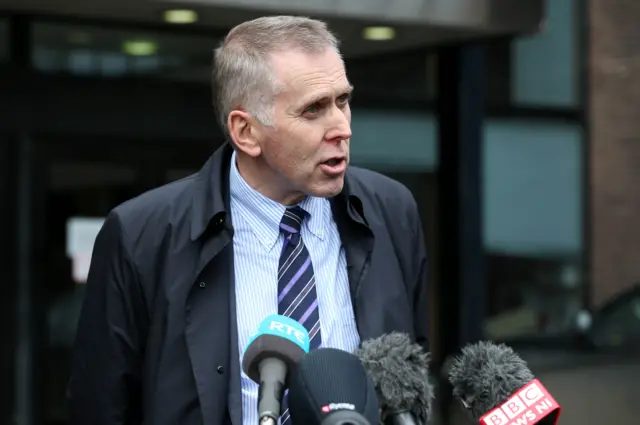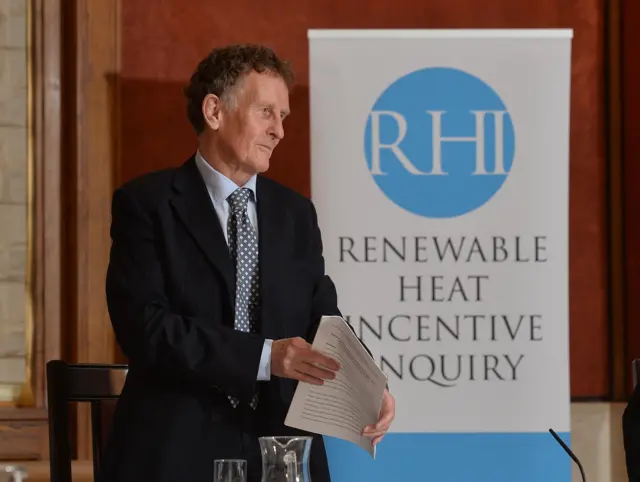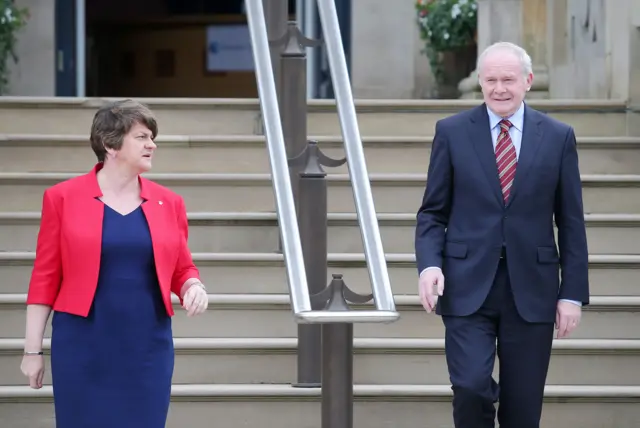'I wasn't aware of warnings RHI wouldn't hit target'published at 12:34 GMT 13 March 2018
It's put to Mr Sterling that there were a number of "flags" that the RHI scheme was not going to reach its targets, particularly in 2013.
Mr Scoffield mentions a report by the consultants at CEPA, which warned that the scheme was unlikely to help meet Northern Ireland's target of producing 10% of the region's heat through renewable sources by 2020.
Mr Sterling says that should it have been flagged up to DETI's senior management.
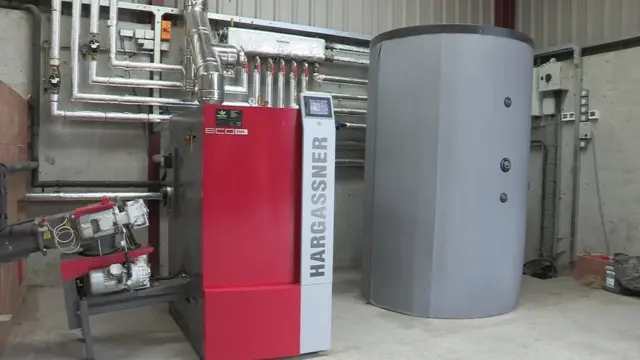
"Until I started looking this all again I wasn't conscious that there were flags in 2013 which were suggesting that we wouldn't meet the 2015 and 2020 targets," he adds.
Dr MacLean says that given that those failures could have resulted in substantial fines from the EU, shouldn't his system have been flagging this up to him?
"Absolutely," the witness replies, adding that ministers would be "unforgiving" if Northern Ireland had been fined for missing the target.
